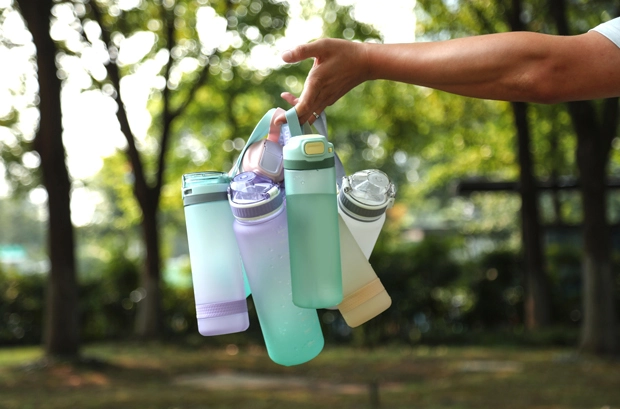In daily life, we use water cups for drinking water and tea, so everyone pays close attention to the material safety of these cups. Common cup materials mainly include stainless steel, glass, and plastic. Each material has different characteristics and applicable scenarios. So, which material is safer for water cups?
Plastic cups are very popular in outdoor activities and daily travel due to their advantages of being lightweight, shatterproof, and easy to carry. However, the safety of plastic cups has always been controversial. Generally speaking, choosing BPA-free water bottles produced by reputable manufacturers like EVERICH, which meet safety standards, can offer relatively higher safety.
EVERICH's BPA-free water bottles fully consider consumers' health, using harmless chemicals, ensuring users can use them with peace of mind. EVERICH's wholesale water bottles BPA-free are not only stylish in design but also very durable, making them a good choice for those pursuing a healthy lifestyle.

Stainless steel kettles, especially those made of 304 or 316 stainless steel materials, hold a significant market position due to their excellent durability and safety. As a food-grade material, 304 stainless steel has outstanding corrosion resistance and high-temperature stability. It won't release harmful substances even at high temperatures, ensuring the safety of drinking water. This material is also commonly used in tableware, kitchenware, and other food-contact items.
However, even though stainless steel water bottle bulk perform well under normal use, it is still necessary to avoid storing beverages in extreme acidic or alkaline environments for long periods to prevent metal elements from leaching out. For instance, storing goji berries and red dates in a thermos for an extended time might create gases that could cause the cup to rupture. Similarly, high-protein drinks like milk or soy milk can spoil easily in a thermos.
Glass cups are the first choice for many health-conscious individuals due to their non-toxic, odorless, and easy-to-clean characteristics. Glass does not contain organic chemicals during its manufacturing process and won't release harmful substances when in use, thus being safe for the human body. Additionally, the transparency of glass allows us to clearly see the state of the beverage, making it easier to judge whether it is suitable for drinking. Moreover, the smooth surface of glass makes it less likely to harbor bacteria and dirt, making it very easy to clean. High-borosilicate glass is especially resistant to shock and heat, withstanding temperatures up to 450°C, making it generally safe for drinking hot water.

